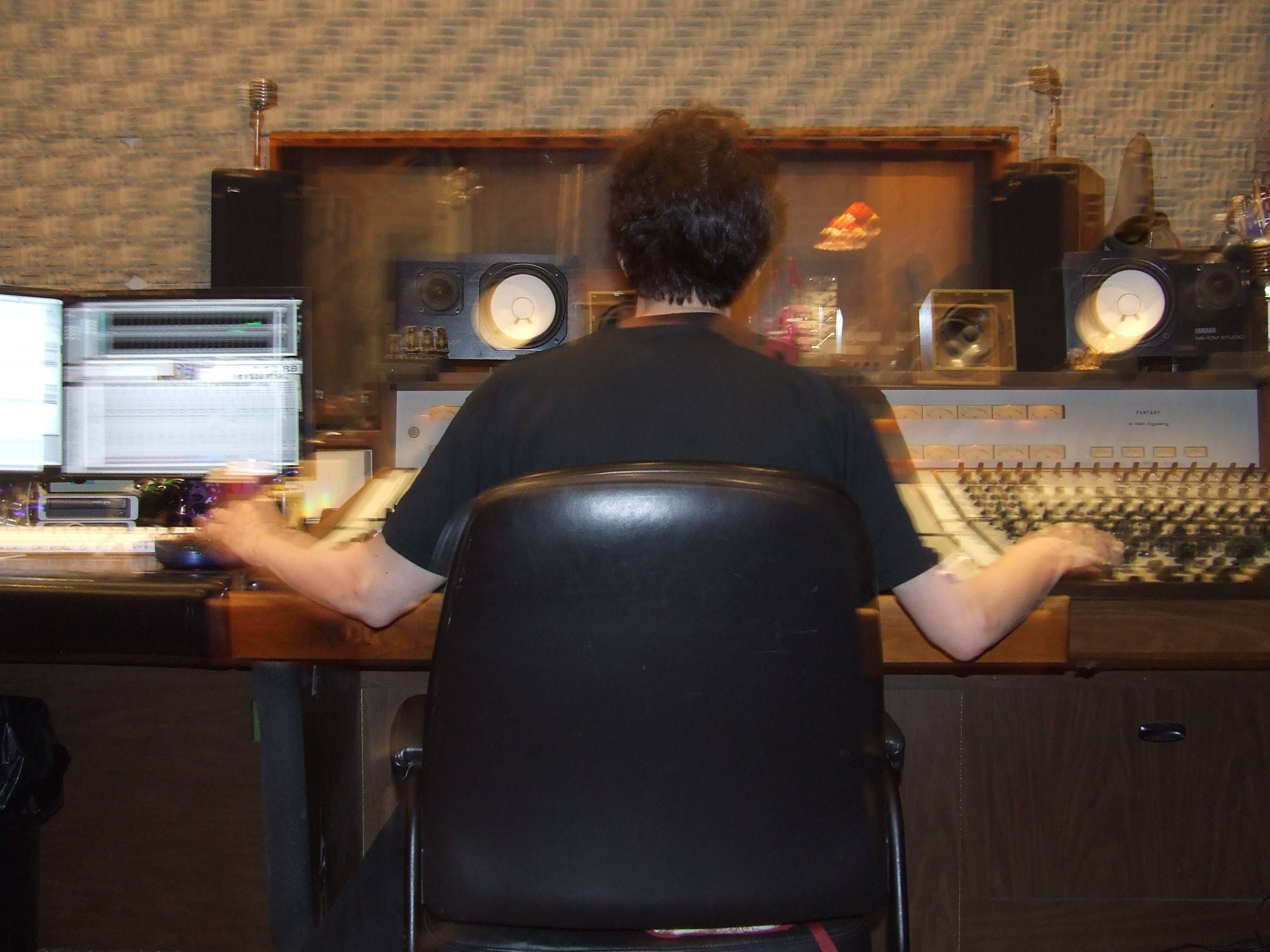
Record producers are nuts.
Perhaps the quintessential maniacal record producer is Phil Spector, originator of the “Wall of Sound,” who was convicted earlier this year in the 2003 murder of actress Lana Clarkson resulting in a prison sentence of 19 years to life. He brandished firearms in the studio on multiple occasions and may or may not have taken aim at John Lennon, Leonard Cohen and members of the Ramones (among others) while recording.
The list could go on. Guy Stevens filled pianos with wine during the Clash’s London Calling sessions and swung furniture over the band’s heads screaming “play for your lives!” as they dodged and ducked. Bob Ezrin locked his own children in a closet and told them their mother was dead while recording their cries for “The Kids” on Lou Reed’s third solo record, Berlin. Pioneering British producer Joe Meek had an obsession with the occult and believed the meows of cats were actually human voices asking for help from beyond the grave. The Beach Boys’ Brian Wilson is said to have been terrified of the beach for a number of years (filling his living room with sand instead), was a voracious cocaine addict, was obsessed with the Ronettes’ “Be My Baby” (produced by the aforementioned Spector) and was diagnosed with schizophrenia and biopolar disorder leading to a controversial relationship with therapist Eugene Landy in the 70s and 80s.
Surely many of these stories have been exaggerated over the years, but that does not make them any less tragic, or as is often the case, amusing. But it begs the question: Are all record producers nuts? Is it part of the job description?
According to Mark Rubel of Pogo Studio in Champaign, yes and no.
“Producers are kind of like isolated wizards, each in our own cave,” he said.
As a recent transplant to Champaign-Urbana, I had to catch up with him to learn more about his work, Pogo Studio and his amazing collection of vintage instruments and memorabilia.
“You have to have a strong personality to be into this kind of thing,” Rubel said. “Even crazy producers still have a method. I mean, look at the guy who started rock and roll, Sam Phillips. He was a crazy bastard, but knew exactly what he was doing.”
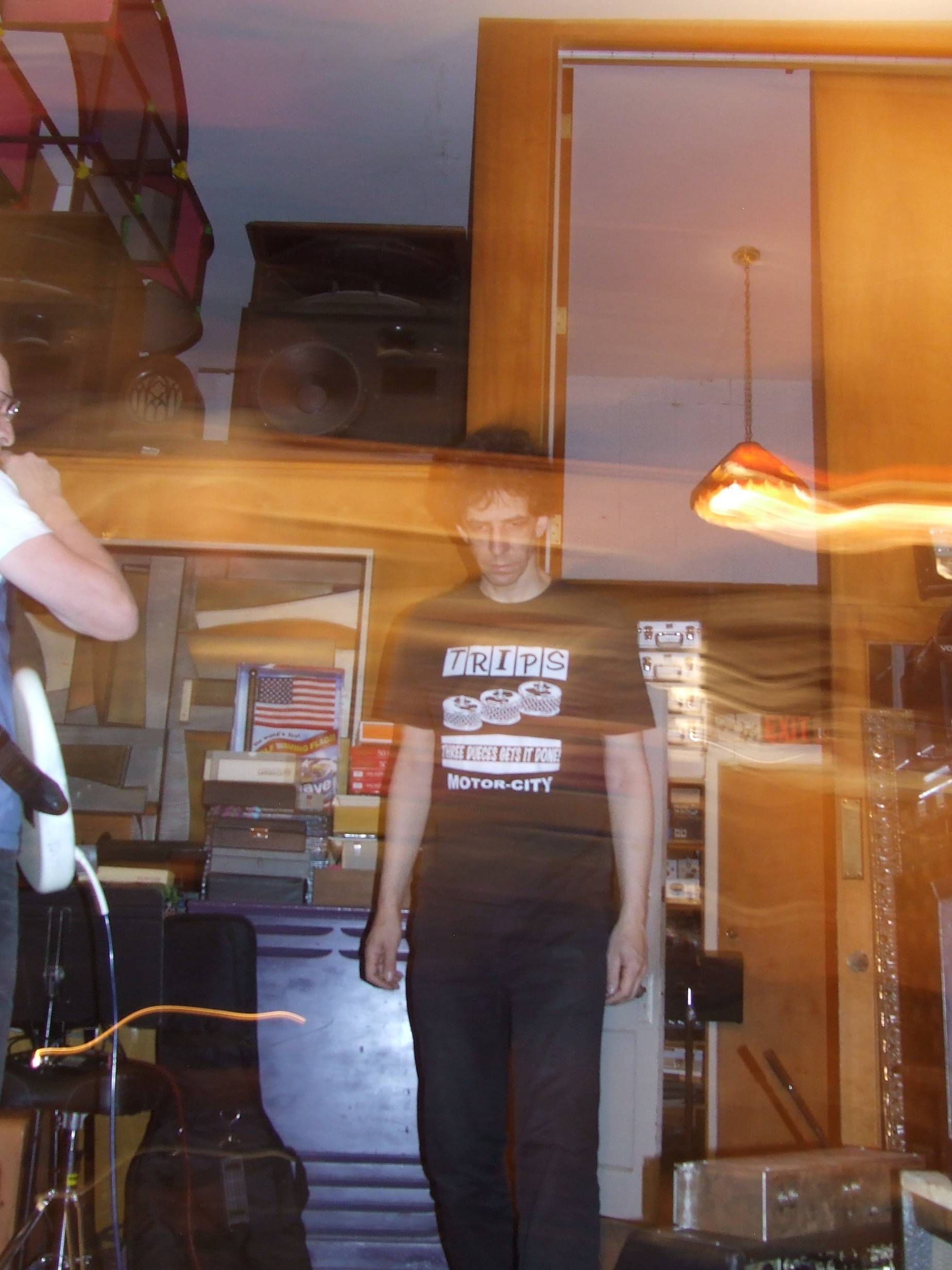 Rubel started Pogo Studio in 1980 in a small house in Urbana near the corner of Clark and Busey. The studio relocated to an inconspicuous location at 35 Taylor St. in downtown Champaign in 1985 where it remains today. Rubel has produced and engineered thousands of records in the past 30 years with clients including Hum, Alison Krauss, American Minor, Adrian Belew, Luther Allison, Toby Twining, the Red Hot Valentines, Mojo Nixon, Melanie and countless local and regional acts.
Rubel started Pogo Studio in 1980 in a small house in Urbana near the corner of Clark and Busey. The studio relocated to an inconspicuous location at 35 Taylor St. in downtown Champaign in 1985 where it remains today. Rubel has produced and engineered thousands of records in the past 30 years with clients including Hum, Alison Krauss, American Minor, Adrian Belew, Luther Allison, Toby Twining, the Red Hot Valentines, Mojo Nixon, Melanie and countless local and regional acts.
Rubel’s approach and philosophy vary day by day.
“Today’s philosophy? Well, there are a few. The people involved in the process are very important. Music is true art when it is done properly. As producers, we always have to remember it is not our record. We’re the frame, but I try not to put myself into the painting. I like to think of myself as a community portrait artists and I try not to get away from the essence of something. I try to capture that essence.”
Having a graduate degree in Art History, I naturally wonder about the parallels between contemporary art and recording, specifically the notion that the medium is the message. This could get weird.
“The idea that the medium is the message really depends on the mission,” Rubel said. “Sometimes there is too much emphasis on the idea that the medium is the message. I also think it is easier to do things if you derive from the essence of something to get to the mission. It is easy to lose direction in the details, so if you start with a mission instead of in the details, you’ll get there quicker.”
In order to accomplish the mission at hand, Rubel works in the digital format despite having a reputation as a predominantly vintage studio.
“I think we often get this reputation of being a vintage studio because of all this gear, but I do pretty much everything digital into a Mac. A lot of that is because digital allows me to work quickly. Sonically, there a lot of things that are better about analog tape… You know, it really warms things up, but I think the great thing about digital is that it acts as a pretty decent mirror.”
“But there are some sounds that just can’t be duplicated and that is where the vintage edge comes in. I think I also have this quasi-magical or superstitious way of thinking about the aura of an instrument that I think is totally valid.”
Getting weirder…
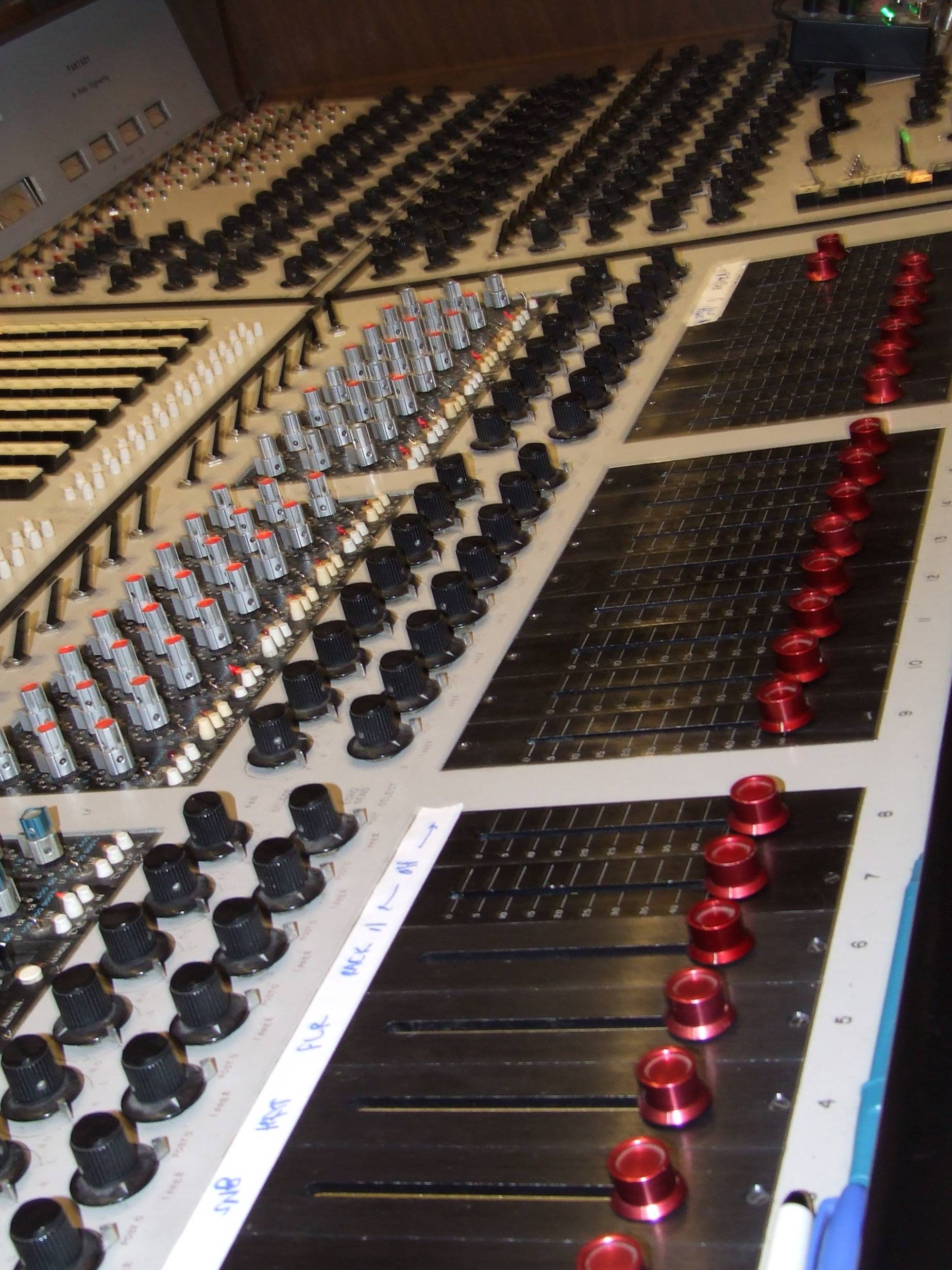 Looking around his studio, it is easy to understand why. The soundboard Rubel uses was created in the early 70s for Fantasy Studios in Berkley, Calif. to record Creedence Clearwater Revival records and has been graced by everyone from the Grateful Dead to Prince. By a stroke of luck, the studio was forced to sell it and Rubel was amused when his admittedly low offer on the board was accepted after the first buyer learned it would not fit up the stairs to his studio.
Looking around his studio, it is easy to understand why. The soundboard Rubel uses was created in the early 70s for Fantasy Studios in Berkley, Calif. to record Creedence Clearwater Revival records and has been graced by everyone from the Grateful Dead to Prince. By a stroke of luck, the studio was forced to sell it and Rubel was amused when his admittedly low offer on the board was accepted after the first buyer learned it would not fit up the stairs to his studio.
Moreover, Pogo Studios is a testament and homage to the history of the recording industry, although Rubel admits that his reel-to-reel acts more as a coffee table these days. Dozens and dozens of vintage and homemade guitars, basses, organs, mics, tube amps and drums litter the studio capped by small still lifes of memorabilia Rubel has collected over the years — many of them collected just as their popularity (and price) was waning, but before the resurgence in vintage gear.
Perhaps that is what gives Rubel the advantage over home studios and competitors.
“I suppose I should feel professionally threatened [by the advent of home recording], but I don’t,” he said. “I’m glad to see more people have access to making art. It’s a wonderful thing to give people access to technology to get their voices heard.”
“The problem is more now that everyone has access, so there can often be a heavier emphasis on the technique more than the performance. So sometimes someone needs to say, ‘maybe you don’t need 37 guitars on there.’ Crappy music is still crappy music when it is well recorded. Good music is still good music even if it is crappily recorded.”
Along with the budding interest in home recording techniques comes an increase in the amount of people requiring the skills to learn those techniques properly. Not only has Rubel been actively involved in creating music, but he is also involved in music education having taught 75 semesters of recording at Parkland College since 1985 as well as music business at Millikin University and music technology and the history of rock at Eastern Illinois University.
Teaching? Admirable, certainly, but maybe not so strange.
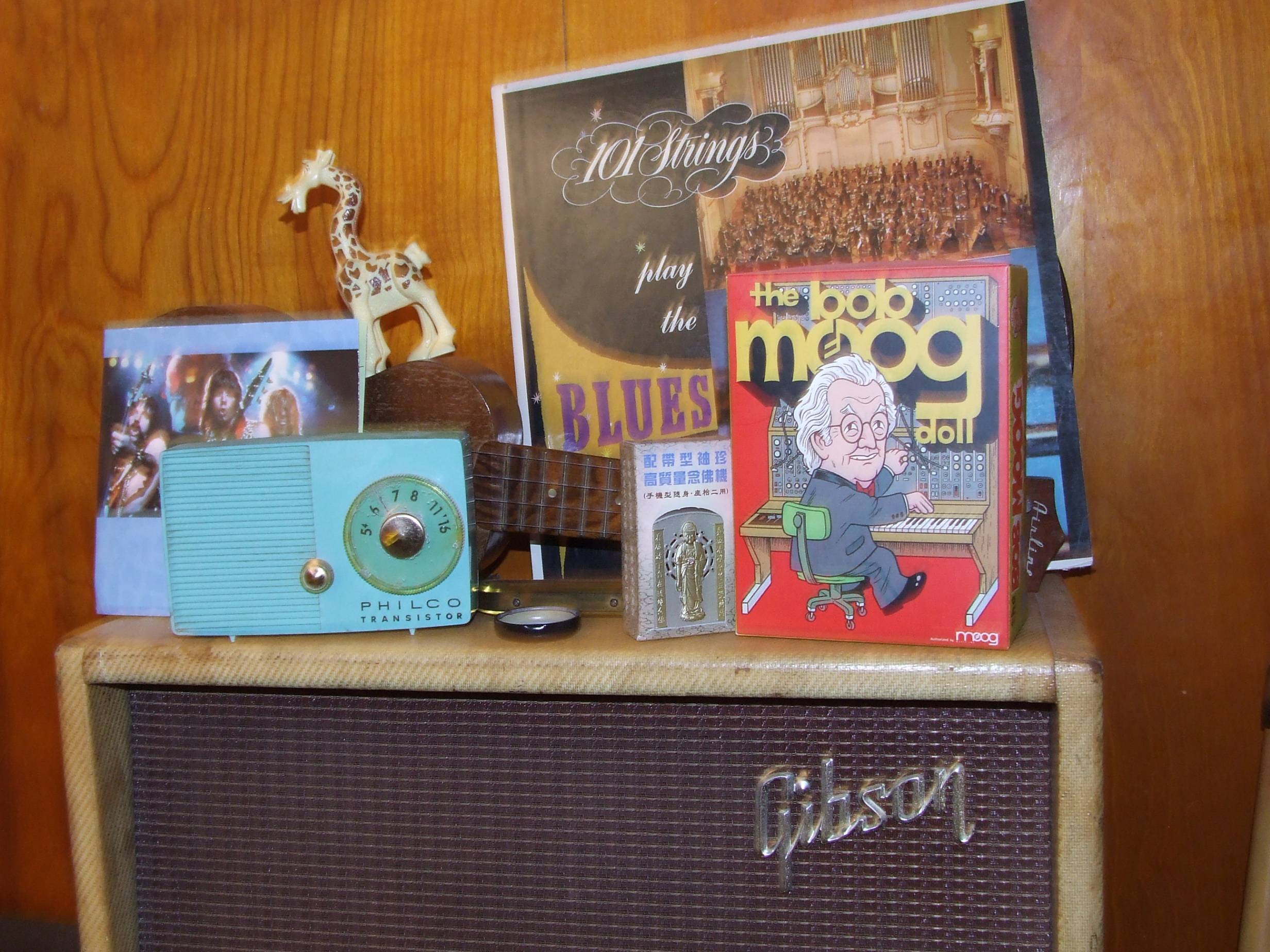 “I did deliberately decide to teach because more people are looking to learn how to use all this stuff now. I look at teaching as a professional responsibility.”
“I did deliberately decide to teach because more people are looking to learn how to use all this stuff now. I look at teaching as a professional responsibility.”
His enthusiasm for teaching (or even just talking about it) almost rivaled the joy he got playing around auto-tuning a Delta Kings guitar solo he was working on when I left.
“There is a lot of theater in teaching,” he said. “There is no better way to learn a craft than to have to teach it.”
Rubel’s approach to teaching his history of music classes is wholly novel and something I wish I had considered when teaching Art History 101 undergrads a few years ago.
“I start with hip hop and work backwards. I don’t use the ‘and then this happened’ method of teaching.”
“I’ve been alive for most of the history of rock and roll, you know. Rock and roll is an amazing story-its mythology. There are epic tales of struggle and social change. It is like the world was changed through magic,” he continued. “But I’m not a scholar. Scholars are impartial and I’m very opinionated.”
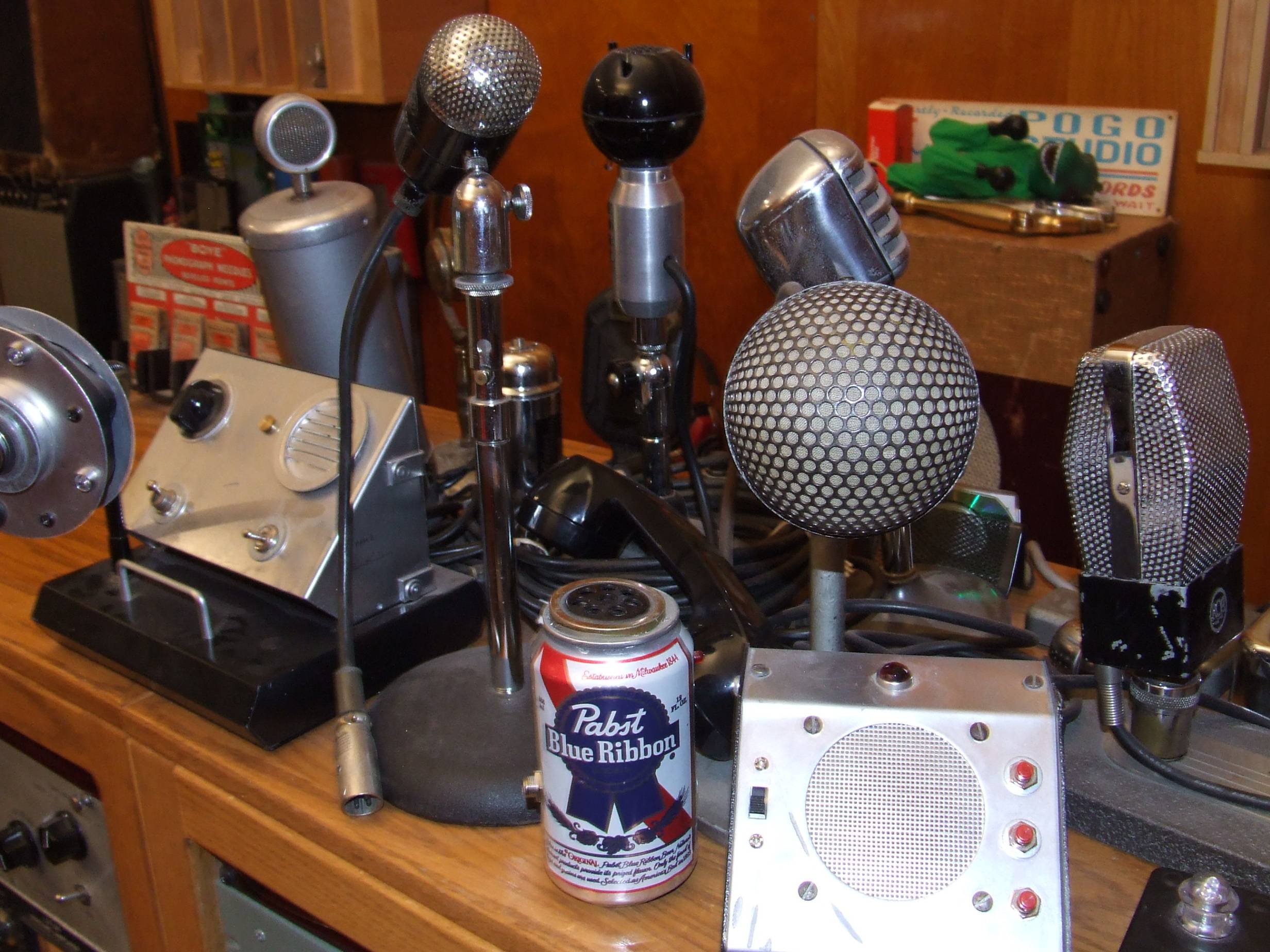 Rubel often brings in studio musicians from Pogo for demonstrations and often finds himself trying to find clean road stories to share with his students.
Rubel often brings in studio musicians from Pogo for demonstrations and often finds himself trying to find clean road stories to share with his students.
Maybe the only thing more amusing than sharing stories about the Zeppelin mudshark incident is knowing that the story exists while sharing relatively tame ones with students instead.
“One of the main reasons I do anything is for the anecdotes and experiences and stories. I never really thought about the influence of my parents much, but my dad was a scientist and mathematician and my mom was a feature journalist. Of course I get a lot from my dad, but I never thought about the influence of my mother until recently, but I think we both kind of document a person in a place and time.”
And the stories are a plenty.
Not only has Rubel operated Pogo Studio since 1980, but he has also played bass in the thrash rock cover band Captain Rat and the Blind Rivets since the early 80s.
“Well, we’re a full on rock and roll band, more or less a punk band because we play sped up and loud. The most amazing thing is we’re still doing it. I was 22 when we started and I’m 51 now. Maybe we’re mainly still doing it to outlast everyone else. We’re not cut out to join a country club.”
One of the more hilarious anecdotes from Captain Rat is the time they opened for Spinal Tap around 1984.
“It was hilarious because they all came in costume and in character, so our first experience meeting them was watching Spinal Tap as Spinal Tap trying to find the dressing room, which is very Spinal Tap. [The show] was really a perfect audience for my band because we tend to want to engage everyone. We can’t deal with an unmoved audience. Half of the crowd was there for Spinal Tap because they thought they were for real and they were wearing black leather and spikes and stuff and the other half was there because they got it. By the end of the show, half of the crowd was ready to kick our ass.”
Totally weird or just rad?
By his own admission, when touring with Captain Rat or playing shows as they often do in the Bahamas, Rubel enjoys more rest than he does when recording, teaching or filling in on any number of prominent boards (including the National Academy of Recording Arts and Sciences, the Audio Engineering Society, the Music and Entertainment Industry Educators Association, the Engineering and Recording Society, SXSW, the Midwest Music Festival and the Midwest Music Summit and countless other recording and engineering conferences).
“I just returned from the Recording Summit in Nashville, and it was quite interesting to hang out with the Nashville guys, also with Bob Ohllsson who was the engineer at Motown, Michael Wagener who did Master of Puppets and worked with Ozzy, Skid Row, etc., also interviewed a friend of mine named Ray Kennedy who’s worked with Steve Earle, Lucinda Williams, John Mellencamp, Ray Davies of the Kinks. Definitely humbling and enlightening, and the anecdotes!”
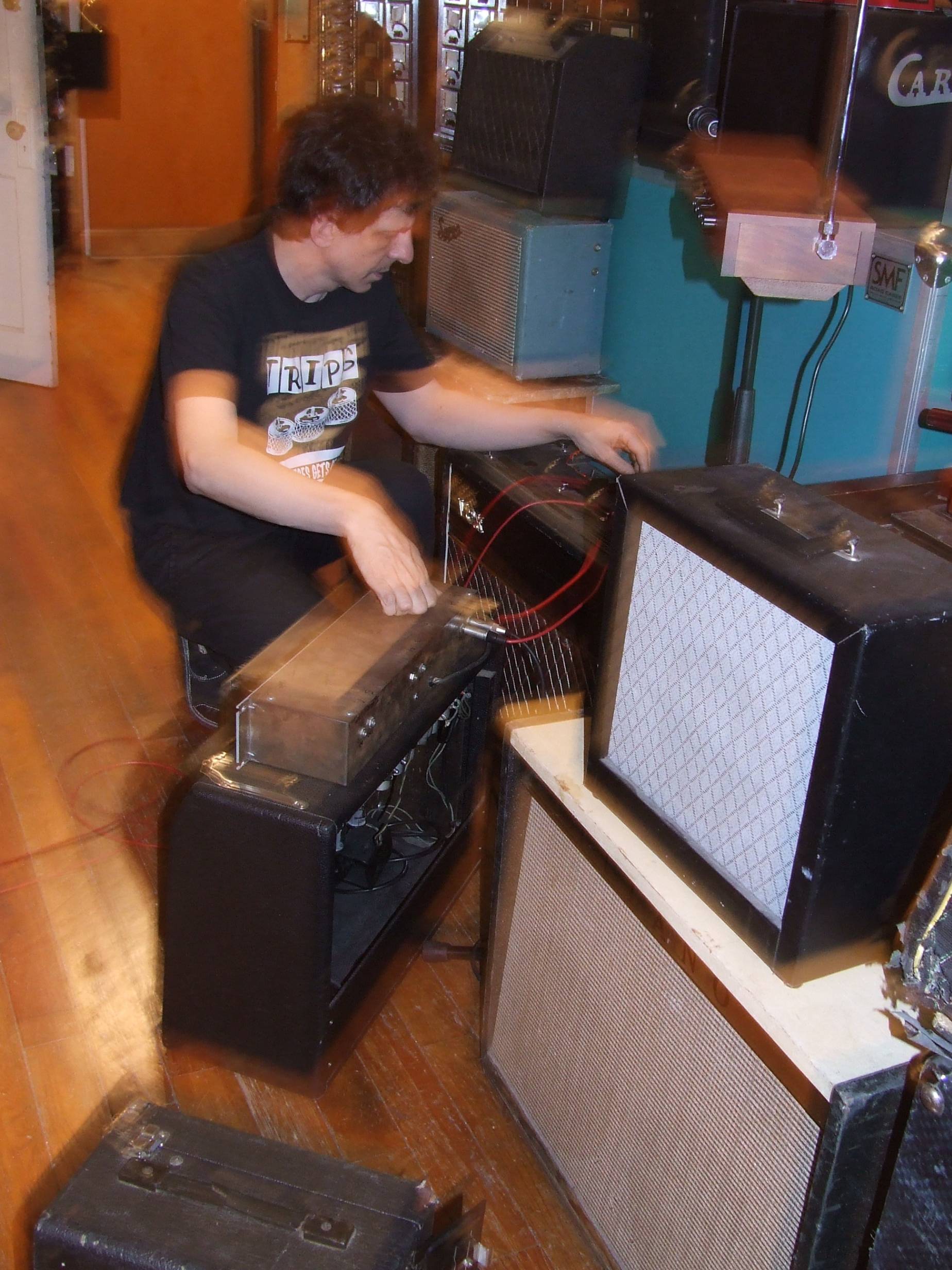 His resume is indeed impressive, but back to the point at hand-is Mark Rubel weird enough to be a record producer?
His resume is indeed impressive, but back to the point at hand-is Mark Rubel weird enough to be a record producer?
“Well, I’m not a homicidal maniac.”
“My excess is that I work too much and don’t sleep. Maybe the effects of sleep deprivation are like turning off your left brain, which is what a lot of producers try to do with drugs and alcohol. All of the other things that come along with drinking and smoking and drugs aren’t an intentional side effect, but they were just trying to get closer to their instinct. If you work hard enough, instinct just becomes what you do, almost through muscle memory and mastery like an athlete.”
“I’m not this driven for the fame and fortune, but because I’m just uncompromisingly devoted to it.”
Maybe his Rubel’s influences hold the key. But when asked, Rubel rattled off a list of some of his favorite producers, most of them seem relatively sane.
“Well, there are some obvious answers to some of my favorite producers, you know, like Nigel Godrich and George Martin. John Brion is really creative and after my heart. He is very orchestral depending on the way you look at it. And I like a lot of things Rick Rubin is involved with even though he might not be the one producing.”
“I’m on the Grammy production committee, so we get together and spend a lot of time debating all of the best producers of the year. I could go on.”
And what about his favorite records?
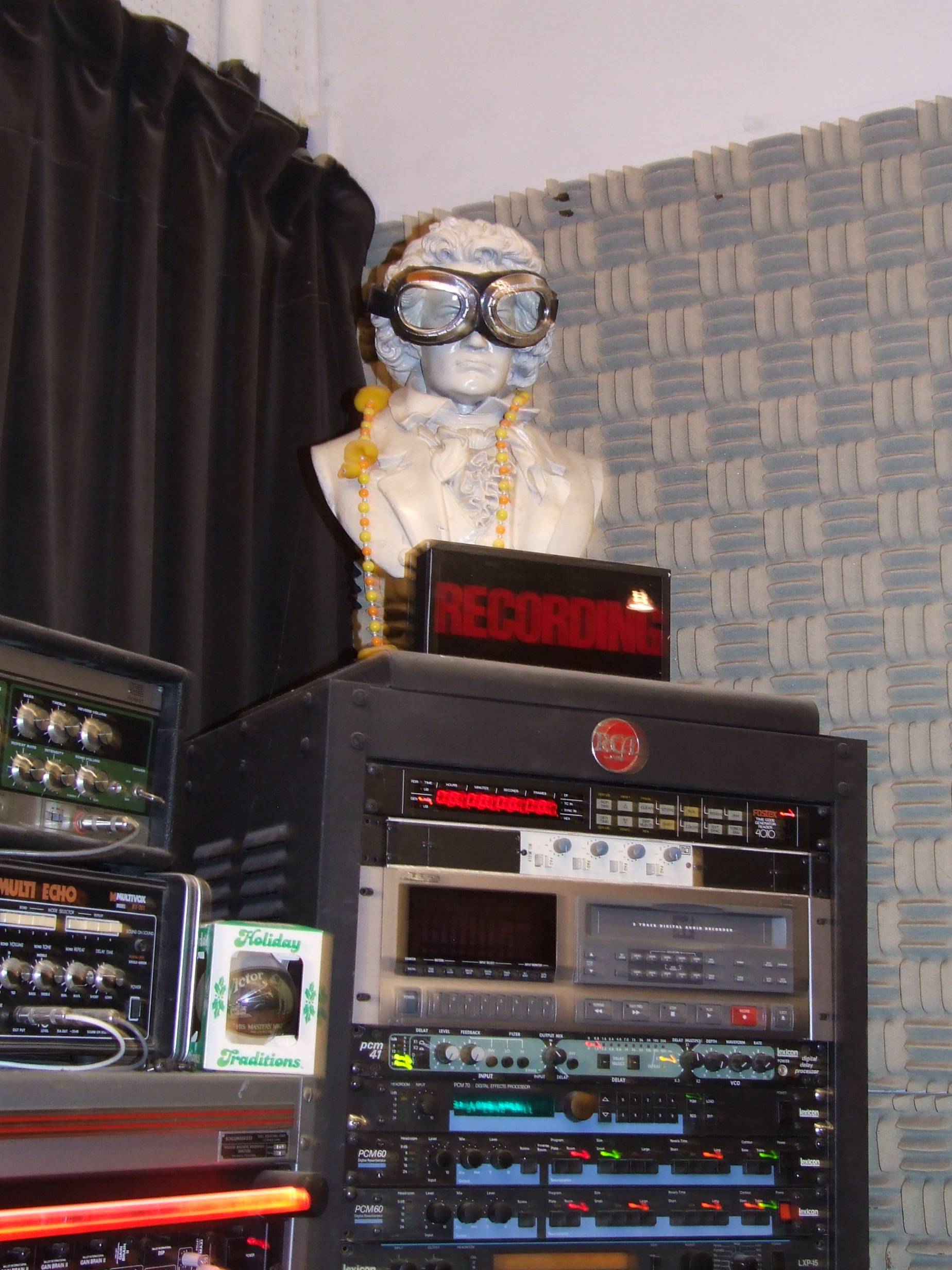 “Generally, there’s so much music that I like and listen to, from more modern stuff like Sigur Ros, to relatively weird stuff like the Residents. The CD that I just now bought is a CD of new music for the vihuela, so it’s all over the place… Probably most of my music listening time these days is classical music in the car as I commute.”
“Generally, there’s so much music that I like and listen to, from more modern stuff like Sigur Ros, to relatively weird stuff like the Residents. The CD that I just now bought is a CD of new music for the vihuela, so it’s all over the place… Probably most of my music listening time these days is classical music in the car as I commute.”
“There are records that I enjoy for the production, whether because it’s great like Jellyfish or Radiohead records, over the top like the Darkness or anything else that Roy Thomas Baker did, or superbly subtle like the Tom Petty Wildflowers record.”
I pressed on about the subtle quirks or recording-things like the faint squeak of John Bonham’s kick drum pedal in the opening stomp to “When the Levee Breaks.”
“Some production quirks are outstanding, some annoying. You’re right about the bass drum squeaks. There are some really loud ones on Motown recordings too.”
So what about favorite records that he has worked on?
“You know, I really love all those records, so I can’t decide on one answer. It is a funny thing since I do this day and night, I can kind of date my life based on what I was working on at the time. Usually whatever is most recent or what I’m doing now is my favorite.”
“I really enjoy all of it equally, so I don’t care if ten or 10 million people hear it. And I don’t care if musicians are good as long as they are nice and sincere.”
So Mark Rubel is not too strange. But maybe that is what makes him just strange enough. Maybe being tucked away in downtown Champaign for the past 20+ years makes him strange by comparison. Or maybe being a genuinely nice guy, refraining from drugs and alcohol and actually trying to leave a new generation with the knowledge he has worked years to gain makes him entirely strange — kind of like how the oddest thing a death metal band could do would be to record a contemporary Christian rock record.
“One of the reasons I stayed here instead of trying to go to New York or LA to make it big is because I have a respect for this culture. I deliberately stayed here because I like to watch things evolve and morph and change. It’s like a novel or a story to follow.”
Rubel pauses.
“I love what I do and I don’t want to stop.”
No rest for the wicked.








